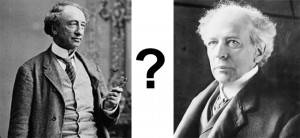Grits or Tories: Who’s worse?

By Karl Hele
Who’s better for First Peoples – Liberals or Conservatives?
With the recent raft of unilateral legislation affecting First Nations– including several proposed amendments to the Indian Act – that have been generated by Prime Minister Stephen Harper and his Conservatives — many First Peoples are pining fondly for good old days of Liberal rule. But is that really what they want?
Since 1867 the Conservatives have given Canada 13 prime ministers compared to nine for the Liberals, who have held Parliamentary power the longest.
During World War I, all political parties formed a Union Government from 1917 to 1920, which passed legislation that allowed for the seizure and lease of Indian reserves for agricultural production and later to obtain lands for settlement or returning soldiers.
Under Conservative rule (1867-73, 1878-6, 1911-17, 1920-21, 1926, 1930-35, 1957-63, 1979-80, 1984-93 and 2006-present) a number of detestable laws came into existence, such as the 1869 Gradual Enfranchisement Act, and amendments to the Indian Act from 1879 to 1885 that made Indian Agents justices of the peace, implemented mandatory schooling, and prohibited religious ceremonies. In an attempt to limit traditional activities a ban on wearing “aboriginal costume” was added in 1914 to the general prohibition on ceremonies and other non-sanctioned activities.
Under Prime Minister Sir John A. Macdonald treaties in western Canada were negotiated and broken, people were purposefully starved to enforce compliance, and a kangaroo court convened to hang Métis patriot Louis Riel.
In 1961 the Diefenbaker Conservatives granted Indians the right to vote in federal elections without becoming enfranchised.
After decades of dispute about rules for Indian “status”, in 1985 the Mulroney Conservatives were forced to amend the Indian Act to end the forced enfranchisement of Indian women, although this was largely in response to a United Nations ruling against Canada and the passage of the 1982 Charter of Rights and Freedoms.
Harper was first elected in 2006, following which the Conservatives amended the Human Rights Act to “grant” Indians rights which were denied to us in 1977 by the Liberal government. Once again, federal legislation was implemented after a typical “here’s what we’re going to do” style of consultation with First Nations, whose concerns about the legislation largely fell on deaf ears.
Among their other legislative assaults on First Nation rights, the Harper Conservatives have proposed laws that would turn communal reserve lands into freehold tenure, laying the groundwork for potential community fracture for dubious economic benefit.
Under Liberal rule the 1876 Indian Act came into existence. While in power from 1905 to 1911 the Liberals amended the Indian Act to permit the removal of Indians from reserves near towns of 8,000 or more settlers, and permitted cities and corporations to expropriate lands for roads and railways.
From 1923 to 1936 the Liberals ended treaty-making, passed various Natural Resource Transfer and Lands Acts with the provinces, and banned Indians from pursuing claims against Canada. In 1951 Liberals removed the more odious aspects of the Indian Act while granting women the right to vote in band elections, modified enfranchisement for women, and implemented secret ballots, but retained the Act’s core assimilationist principles.
Returned to power in 1968, the Liberals under Prime Minister Pierre Trudeau and Indian Affairs Minister Jean Chretien sought to legislatively eliminate Indians and treaty rights under the terms of the 1969 White Paper. They retreated from this policy after the 1973 Calder Decision in the Supreme Court of Canada affirmed the concept of aboriginal land title. In 1974 the Trudeau government created the Office of Native Claims, thereby returning Canada to the treaty process.
When he repatriated the Constitution to Canada in 1982, Trudeau included a section that recognized Aboriginal and Treaty rights while limiting it to “existing” rights only. But neither major political party has seen fit to introduce legislation that would implement these rights to self-government, or Supreme Court decisions upholding Indigenous rights.
The Liberals while in office in Canada the longest, often attack Conservative efforts to modify the Indian Act, but failed to repeal any changes made by former governments or even deal with the paternalistic policy that their party put into effect in 1876.
Over the past year In Question Period, Liberal MPs have berated the Harper cabinet for not creating education equity between First Nations and other students, but it was their government in 1996 under Jean Chretien that imposed a two-percent annual funding cap.
Both Liberals – known historically as “Grits” — and Conservatives—“Tories” — have one political practice in common when it comes to tabling legislation that deals with First Peoples’ issues – they have both done so down through the years without bothering to obtain the “free, prior, and informed consent” that is flagged by the United Nations Declaration on the Rights of Indigenous Peoples, a protocol to which Canada is signatory.
So which party is worse? Like an old soap advertisement asked, “I can’t tell the difference, can you tell the difference?”
Karl Hele, Garden River First Nation, is director of the First Peoples’ Program at Concordia University in Montreal.


